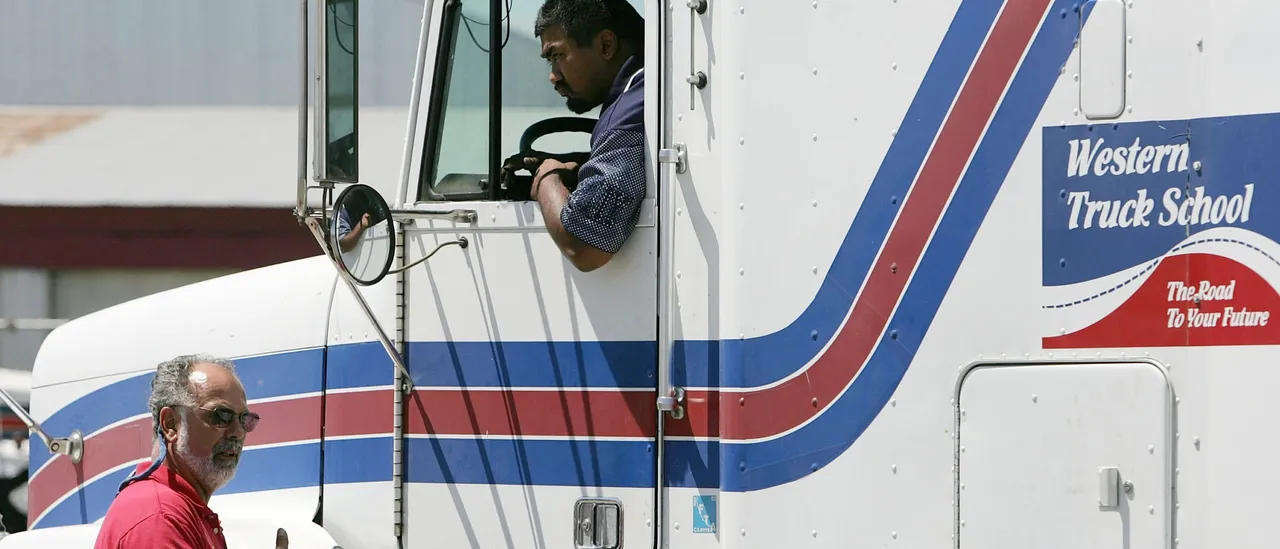STEVE MILLOY: Trump EPA Swamped Again On Glider Trucks?
Why it matters
- The ongoing debate around glider trucks highlights the tension between environmental regulation and economic interests.
- Glider trucks, which are remanufactured vehicles, pose unique challenges as they can emit pollutants at levels exceeding modern standards.
- This situation raises questions about the efficacy of the EPA's regulatory framework in balancing economic growth with environmental protection.
In recent developments, the Environmental Protection Agency (EPA) under the Trump administration is once again grappling with the contentious issue of glider trucks. These vehicles, which are essentially rebuilt trucks that utilize older engines, have sparked significant debate regarding their environmental impact. Critics argue that glider trucks contribute disproportionately to air pollution, as they are not subject to the same stringent emissions standards as newer models.
The EPA previously attempted to regulate these trucks more strictly but faced considerable pushback from industry stakeholders and lawmakers who argue that glider trucks represent a cost-effective solution for many small businesses. The current administration's stance has been to support the continuation of glider truck production, which has led to a complex regulatory environment.
The latest scrutiny surrounding glider trucks comes amidst a backdrop of broader environmental policies that are being reevaluated under the Trump administration. As the EPA navigates this contentious landscape, it faces pressure from environmental advocates who insist that the agency is failing to safeguard public health. These advocates point to studies indicating that glider trucks can emit up to 40 times more nitrogen oxides than modern trucks, raising alarms regarding air quality and health implications.
On the other hand, proponents of glider trucks, including many in the trucking industry, argue that these vehicles are crucial for maintaining economic viability, particularly for small operators who may not have the financial capacity to invest in newer, more expensive models. They contend that the government should prioritize economic growth and job creation, especially in the transportation sector, which is vital to the U.S. economy.
The debate surrounding glider trucks has drawn attention to the underlying complexities of environmental regulation. The Trump administration's approach has often been characterized by a deregulatory agenda, aimed at reducing what it sees as burdensome regulations. However, this stance raises critical questions about the long-term consequences of such policies on public health and environmental sustainability.
The ongoing discussions within the EPA reflect a broader dilemma faced by policymakers: how to balance economic interests with the imperative of protecting the environment. As the agency considers its next steps regarding glider trucks, it must weigh the potential benefits of these vehicles against the significant environmental costs they may incur.
Moreover, the issue of glider trucks is just one facet of a larger conversation about the future of transportation in the United States. With growing concerns about climate change and air quality, the need for comprehensive strategies to reduce emissions across all transportation modes is becoming increasingly urgent. This has prompted calls for more innovative solutions, including the advancement of electric and alternative fuel vehicles, which may offer a more sustainable path forward.
As stakeholders on both sides of the issue prepare for further discussions, the outcome of this debate will likely have far-reaching implications. How the EPA decides to regulate glider trucks could set a precedent for future policies concerning emissions and environmental standards in the transportation sector. The balance struck here will not only influence the trucking industry but also shape the broader narrative surrounding environmental responsibility and economic growth in the years to come.
In conclusion, the Trump administration's handling of the glider truck issue is emblematic of the ongoing struggle to reconcile economic interests with environmental stewardship. As the EPA moves forward, its decisions will be closely watched by both supporters and critics, each hoping to sway the agency's approach to this complex and critical issue.











